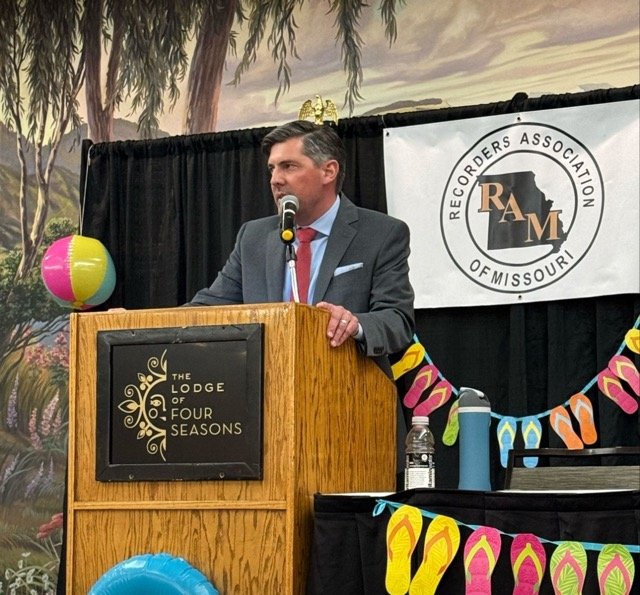

Instructional Video Development
Video publication developed in concert with the Olin school of Business of Washington University in St. Louis. The instructional video covers traffic stop reporting and laws concerning racial profiling.
2022 LEIU/IALEIA Annual Training Event
"It's 2022; Police Like It!" is a thought-provoking seminar based on ImproveComp, LLC's extremely popular 8 hour course entitled "Policing with Procedural Justice." Today's world of law enforcement, and the expectations placed on law enforcement officers, is different than when many of today's investigators began in their careers. The public expects that officers, regardless of their job title, perform their duties in a transparent, communicative, and fair way. This seminar is timely and modern. The 90-minute seminar gives overview into the development of how modern policing came to be, the pillars of procedural justice, and the costs associated with failing to adhere to procedural justice principles while policing. No topic, arguably, is more prevalent than that of progressive law enforcement methods.
This particular seminar is tailored for intelligence-related investigators in that it provides specific examples of how to employ procedural justice techniques in a non-traditional law enforcement setting; e.g. in target-interviews, after search warrants/entries, etc.
The beginning of the seminar details the eras of modern law enforcement. This section incorporates hallmarks of change to include then-Commissioner Theodore Roosevelt's impact on the NYPD, the rise of Bill Parker at LAPD and Parker's influence on modern American policing via Dragnet and other programs, the decay of the professional era under Daryl Gates at LAPD, and the transition to the Homeland Security Era around 9/11. This portion leads into explanation of the current epoch that some refer to as "Post-Ferguson." The seminar's beginning contains many images that attendees find engaging.
After the basis explanation of eras, there is explanation of survey data about what citizens think of LE today based on PEW research. An explanation follows, using examples, of the pillars of procedural justice. The course concludes with valuable takeaways about how to incorporate the tenets of procedural justice outside of a patrol context, i.e. when obtaining consent to enter a residence or when explaining about an arrest when an undercover officer was involved.
The 8 hour course from where "It's 2022; Police Like It!" stems has been wildly popular in the Midwest. The 90 minute version is sure to be well-attended at the 2022 LEIU/IALEIA Training Event.
Guest Speaker - Olin Business School at the Washington University in St. Louis
Colby and A.J. presented the difficulties in finding meaning within traffic stop data reported by police departments. They also discussed new techniques for analyzing police traffic stop data.
Custom Course Design - State Department of Public Safety
ImproveComp has been selected to design an online course for a state department of public safety. The course will be disseminated to law enforcement officers throughout the state.
Policing with Procedural Justice - Missouri Police Chief's Association
Procedural justice is critical for achieving legitimacy with the community. The 8-hour Policing with Procedural Justice course teaches students the fundamentals of procedural justice and how to implement it during day-to-day policing tasks. The information is critical for policing in modern society and maintaining legitimacy with the community.
The phrases “procedural justice” and “police legitimacy” are frequently referenced during discussions of improving police-community relations. These concepts are certainly a pillar of strong police-community relations, but how does the patrol officer implement them? Many police courses will instruct officers to use more procedural justice or increase legitimacy without actually teaching them what that means. The academic community has been researching these concepts for many years and have distilled the abstract concepts into actionable steps officers can take to increase procedural justice and thereby foster legitimacy. The 8-hour course reviews these concepts along with the framework of institutional legitimacy as a way for officers to understand the foundation of strong police-community relations. The course reviews common policing tasks and offers steps to improve them with procedural justice.
Policing with Procedural Justice
Procedural justice is one key to achieving legitimacy with the community and stakeholders. The 8-hour Policing with Procedural Justice course teaches students the fundamentals of procedural justice and how to implement it during day-to-day policing tasks. The information is critical to understand for policing in modern society. The concept of legitimacy is featured as the first pillar in The President's Task Force on 21st Century Policing. Students will learn the following from the course:
How to increase the amount of voice citizens have during transactions with the police;
How to increase the perception of fairness during decision making;
How to maintain an individual's sense of dignity and avoid violent encounters;
How to convey motives that foster a sense of justice with citizens.
To get the flyer click here.
Policing with Procedural Justice
Procedural justice is one key to achieving legitimacy with the community and stakeholders. The 8-hour Policing with Procedural Justice course teaches students the fundamentals of procedural justice and how to implement it during day-to-day policing tasks. The information is critical to understand for policing in modern society. The concept of legitimacy is featured as the first pillar in The President's Task Force on 21st Century Policing. Students will learn the following from the course:
How to increase the amount of voice citizens have during transactions with the police;
How to increase the perception of fairness during decision making;
How to maintain an individual's sense of dignity and avoid violent encounters;
How to convey motives that foster a sense of justice with citizens.
To get the flyer click here
